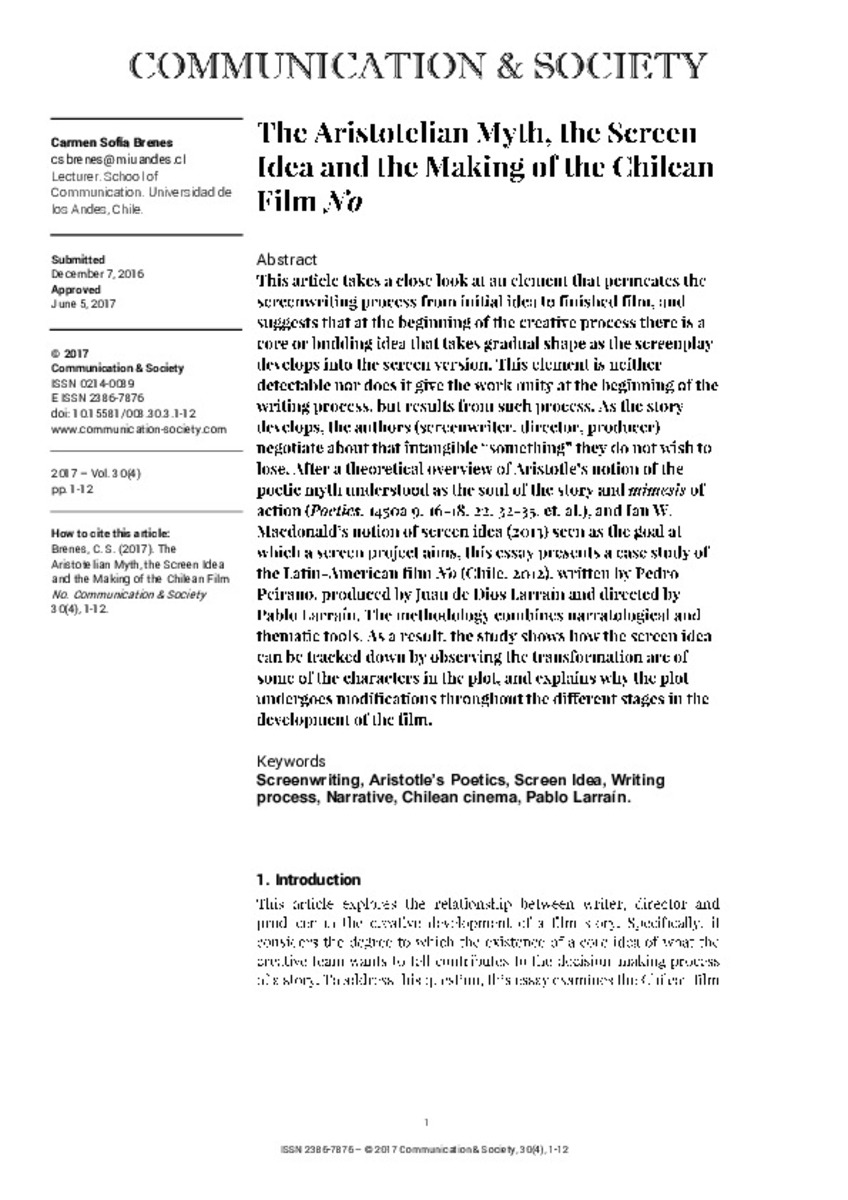The Aristotelian Myth, the Screen Idea and the Making of the Chilean Film No
Palabras clave :
Screenwriting
Aristotle's Poetics
Screen Idea
Writing process
Narrative
Chilean cinema
Pablo Larraín
Fecha de publicación :
2017
Editorial :
Servicio de Publicaciones de la Universidad de Navarra
Cita:
Brenes, C.S. (Carmen Sofía). "The Aristotelian Myth, the Screen Idea and the Making of the Chilean Film No". Communication & Society. 30 (4), 2017, 1 - 12
Aparece en las colecciones:
Estadísticas e impacto
0 citas en

0 citas en

Los ítems de Dadun están protegidos por copyright, con todos los derechos reservados, a menos que se indique lo contrario.







